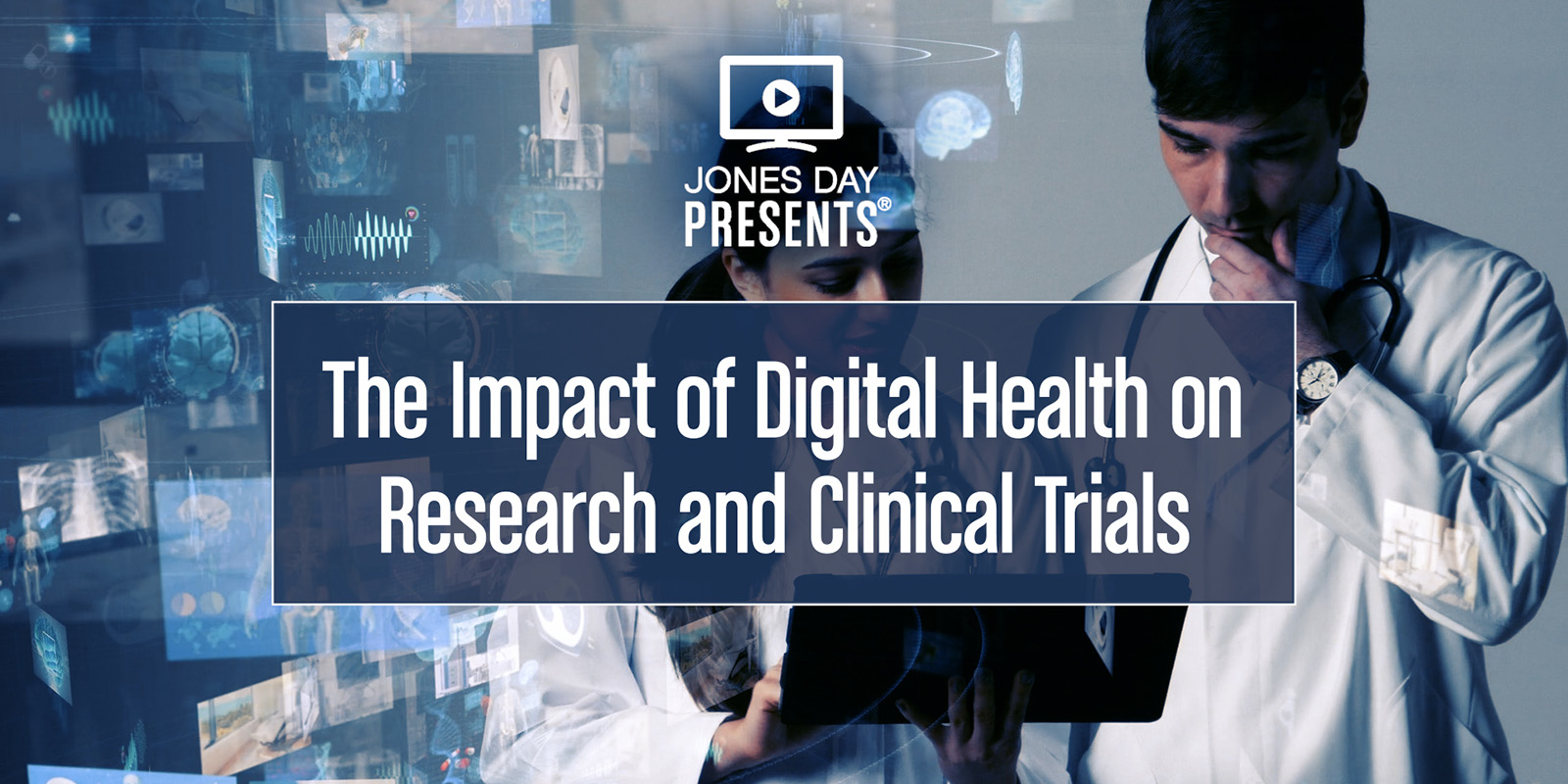
Jones Day Presents: The Impact of Digital Health on Research and Clinical Trials
Digital health technologies have brought a number of significant breakthroughs to clinical trial programs, including faster patient recruitment, more efficient data collection, and better tracking of biometric information. But the new technologies also introduce several complicated legal issues. Jones Day partners Maureen Bennett and Cristiana Spontoni talk about privacy concerns, security measures, changes to the informed consent process, data integrity, and the integration of third-party technologies to regulatory protocols.
Read the full transcript below:
Maureen Bennett:
Research is actually a very underplayed part of the digital health ecosystem. And we've seen over the last several years, the introduction of a number of technologies that have really helped to increase the speed of recruitment of patients into clinical trials, as well as providing more sophisticated means of collecting data from those clinical trial participants, for example, through the use of wearable devices or apps that collect information that really provide a better feel for clinical trial results.
Cristiana Spontoni:
Digital technologies are really disrupting how care is been delivered in Europe. We see wonderful example in clinical trials where apps are being used to track patients' biometrics, or to allow patients to participate even by staying at home, which is a big revolutionary tool for the good of our patients.
Maureen Bennett:
There are definitely new legal issues that come about when introducing new technology into the clinical trial arena, for example, to the extent that a clinical trial participant might use a wearable device to collect information, and that information is then in turn communicated to a healthcare professional. Well, there are some unique privacy issues that are associated with that. Privacy really touches on all aspects of healthcare, given these new methods of transmission. There's no question that this process makes for potentially a breakthrough in the speed of doing clinical trials, the accuracy of results. For example, some of the devices that are used to monitor a patient that might be in, for example, a Parkinson's trial. Well, now we have the ability to not just rely on what a patient describes as his or her ability to move, but we actually have the technology that allows a very precise measurement, but all of that data is protected health information under HIPAA. And so you need to consider how that's transmitted and what kinds of security measures are attached to that transmission.
Maureen Bennett:
In addition, we find that it takes a little bit more information being provided to a subject about the way in which a device might be used in the clinical trial. So the informed consent process has to be more tailored to take into account the use of different kinds of technologies.
Maureen Bennett:
When our clients come to us utilizing some of these new technologies, there are a number of different issues. We work with both sponsors, the pharmaceutical and medical device companies. We also work with CROs that are increasingly working with the industry players to implement this technology. Some of the issues they're concerned about is making sure that there is appropriate data integrity. That's one of the primary goals of FDA and other regulatory agencies. So can you really prove that this data has been well collected, maintained, and you can believe it?
Maureen Bennett:
Often our clients will ask us about the kinds of security measures that are necessary. There's an increasing use of electronic conform consent. So sometimes the questions will be, how can we make sure that the technology that's being used for consent ensures that the actual patient is the one that's consenting? That the person actually understands the information that's being conveyed through the consent?
Maureen Bennett:
Another huge issue is that often there are third parties that provide the technology. And those are parties that are not necessarily immersed in clinical trial regulation, but they have a very cool app or other device. So how do you ensure that incorporating that kind of technology, that if those companies have their own disclaimers or other disclosures, that all of that fits within the clinical trial regulatory protocol.


